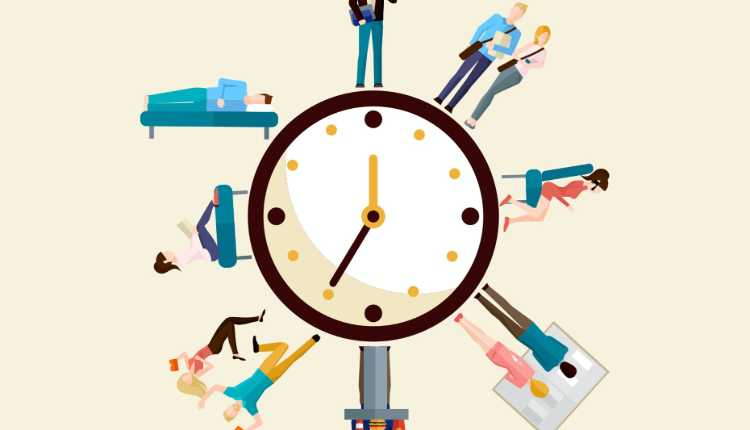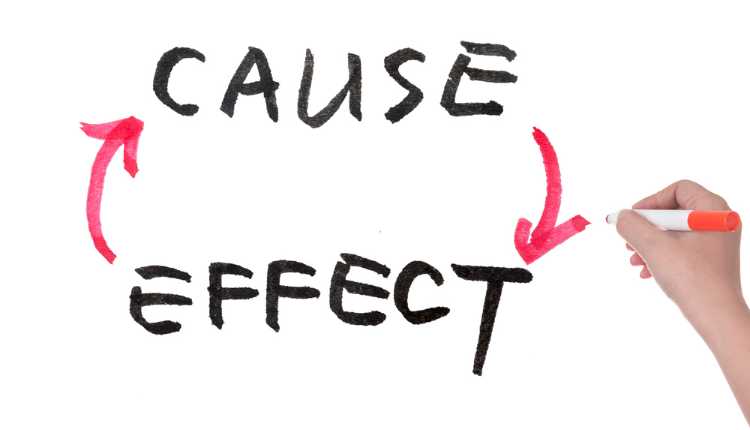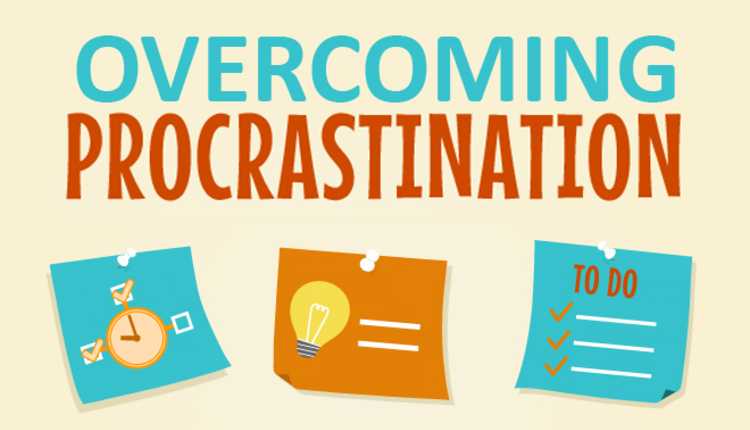Sometimes the symptom of excellence is procrastination. As perfectionists feel that they can not perfectly perform work, they delay it as long as possible. This comes from the concern that failure to accomplish the target would mean something incorrect or undesirable. Besides, the perfectionists fear the failure to criticism or to ridicule either internal or external voices and peers. The higher the fear of disappointment and mockery, the greater the degree of achievement.
To be sure, lingering is not lingering. Moreover, it’s an incorrect sense of operation focused on a poor annoyance and disappointment capacity. If you perceive a greater challenge than you feel, you escape distraction from discomfort. Studies often show a perceptual aspect: people decline in the abstract perception of specific activities. For example, when you delay the completion of a job that appears to take a long time, it only takes less time than to stress about it continually.
Procrastination is easy to spot: do you do, or are you supposed to do what you want to do or surf the Facebook posts/filings/laundry/running commands? You are procrastinating if you replied the following yes. Although it’s interesting to find out what sorts of delay you’re interested in, finding the source of the delay is more important.
The wait or wait of tasks is the interruption or pause of tasks until or at the last minute. Some researchers described procrastination as “a process of self-regulation failure which, despite its potentially negative consequences, is characterised by excessive delays in work.”
Joseph Ferrari, a psychology professor at DePaul University in Chicago, claims that about 20 per cent of the adult US people are pathological procrastinators, and he has written ‘Always Procrastinating: No Shame Guide to Getting Things Done’2. No matter your coordinated and dedicated nature, you could have wasted hours on frivolous pursuits to expend the amount of time on work or school-related tasks (watching television, checking your Facebook profile, shopping online).
If you are delayed to complete your work assignment, skip homework activities, or neglect household duties, your career, grades, and life will be influenced by decay.
What Causes Procrastination?
About the moment you felt you had a week left for the completion of a real project the next day? How about the moment you chose not to clean your flat because “right now you don’t like doing it?”
We also expect that ventures should not take too long to complete, which may lead to a misguided sense of confidence because we assume that certain activities are already completed. The belief that we would be driven or excited for working on a job at a given stage is one of the key reasons that lead to delays.

Following are the causes of procrastination.
1. Academics
Researchers say that replacement among students may be especially pronounced. A 2007 meta-analyze published in the Psychological Bulletin found, in particular when it came to completing activities and teaching, that 80% to 95% of university students were frequently tutorial zed. There are several significant cognitive distortions, according to scientists, which contribute to academic procrastination.

2. Depression
Depression can also contribute to procrastination. Feelings of hopelessness, lack of energy, and helplessness can make starting (and ending) the easiest task hard. Procrastination and depression may also result in self-dubbing. You might find it better to delay it and focus on other projects if you cannot sort out how you can handle a project or feel unsafe with your skills. Rather than doing business, you are addressing different matters such as email checks, social media, and watching. When we hesitate, we waste our spare time and delay the essential activities that we must do. The pathological procrastinators that I know have been in this loop for years. Pause, slow down stuff.

3. Compulsive Disorder
In individuals with obsessive-compulsive disorder, procrastination is also fairly normal. One explanation is that OCD is also related to pathological, manipulative perfectionism that creates fears of error, questions as to how you do anything right, and concerns about the standards of others 5. OCD people quite often appear to become indecisive, which causes them to repress rather than resolve.
4. ADHD
Many people with ADHD are dealing with procrastination ADHD disease (ADHD). It can be hard, to begin with, a mission, particularly if it is difficult or unsound for you to distract you from outside stimulation or internal thinking.
Procreation vs no-procreation
“Non-procrastinators rely on what we need to achieve. They have a better personal identity, and they’re less interested in what counsellors tend to as ‘peer respect’ – like us – rather than self-esteem, which’s what we believe for ourselves.”
According to psychologist Piers Steel, persons with no gap appear to be high in the personality trait called perception, a large spectrum defined by the Big Five personality theory. Those with high sensitivity tend to be high in other domains such as self-discipline, persistence, and legal liability.
 The Effects of Procrastination
The Effects of Procrastination
It becomes a more serious problem only in situations where the delay is persistent and severely affects the everyday life of an individual. It is not only an issue of poor time management skills in such situations but a big part of their lifestyle. They cannot pay their bills until the night before the deadline, start working on massive projects, postpone the day before birthdays and even send their tax returns late.
Unfortunately, this deterioration may have a profound effect on a variety of aspects of life, including the emotional and social, professional, and financial well-being of a person.

How to Overcome procrastination
Everyone put stuff aside. Often it’s a habit that’s hard to break while overcoming procrastination. It is time to take steps when you don’t accomplish what is important to do, keeps you from attaining your ambitions, or leads to a feeling of unhappiness, lack of self-esteem, or isolation.
These 10 easy steps can be what you need to avoid the wait:
1. Cut it down
The sum can be too much to cope with, but splitting a mission or job into smaller bits is the best way to get past a propensity to push things off. Call the bits of the morsel scale.
The resulting work is not only more controllable but still not daunting. Furthermore, you will experience a sense of success after you complete the smaller parts of the mission. This increases your dedication to coping with other items throughout your agenda.

2. Get a plan
If you don’t have an action plan, you won’t do much useful just to split a mission into the part, although it is manageable. Much when you don’t wade into a pool without knowing the depth or being handy with an escape route, it would jeopardise the result if you plunged into a mission or initiative without a good idea of the things involved. You could give up at the first hurdle rather than see the finish line.
At least a schedule would have a guide that you should note, if not foolproof. The propensity is to use every excuse to postpone doing what is important without a timetable.

3. Only stop at the top
You have to meet somewhere, and that’s not in the middle of the end of what you have to do. You can handle some portions of the whole, but this is after you begin from the top. You need to know where you are heading, where you need to go, and how distractions, delays, and challenges you can tackle when first undertaking a mission or projects. In addition to the scheme and the whole scheme being broken into portability, you will feel inspired and determined to see through the idea from the very beginning.

4. Establish a beginning routine
One way to develop a strong tradition is to establish a routine of beginning. If you are about to do a project or job and find it difficult to get inspired, it can help to use a well-known routine, to begin with. It can include hot-ups, a latte, a fun meal, a few reminders, and post-it notes, a favourite person’s or a friend’s call, or something else. Do this routine any time you start a project-the tougher and more nervous, the more a routine is needed to start.
 5. Create a habit of keystone
5. Create a habit of keystone
One of the keys of effective individuals is that they focus on so-called core behaviours. Exercise is one of the best examples of fundamental behaviour. If you train regularly, you get all kinds of advantages. You get healthy food, sleeping well, getting toned, losing weight, feeling better for yourself, getting self accomplished. Find out the pattern of your keystone and apply it to your practice.
 6. Just talk to yourself
6. Just talk to yourself
What you have to do may not be the most fun job, or you might like to commit yourself to another thing. Nevertheless, if there is anything to do, and you are the one to, speak about yourself to strengthen your inspiration. Know that you do this first. Note. Put this aside would not fit with the list of things to do. Know. Right now, taking a break from this mission is one way to interrupt the delay before it begins.

7. Demand support if you need assistance
An obstacle or modification to the mission or assignment is always unforeseen. You’re exhausted now to work as hard as efficiently as you can. When this happens, it’s all right to ask for help. It’s the intelligent thing to do.
Make careful that you don’t want to place your burdens on the shoulders of another person, but don’t be afraid to help others if needed. This helps to reduce the pause in its directions.
 Procrastination and Perfectionism breaking
Procrastination and Perfectionism breaking
You get away from your customer’s conference and get full of thoughts and excitement about what you will do next. You dedicate yourself to a timeline for suggestions, concepts, and prototypes – a form of deliverable to progress the project. It’s all procrastination and perfectionism crystal clear in your head at the time, and you can’t wait to focus on it.
Although everything happens as the date draws nearer, you want to be great, great, fine. Even if your vision is straightforward and your plans are good, the process is always delayed. The joy you felt at first starts to feel terrible. “I have to do more research, collect more knowledge, find more motivation sources before I start so that it can be genuinely successful. Tomorrow will start — I have time, “you say.
The day before the due date is nowhere. You kick yourself now and take away the feeling and drive of yourself to act. It’s the due date, therefore. You’re not only going to get a great chance but also to panic and stress about getting it together at the end of the day.
I want to show you the twins who have just shattered your nerves and your work: perfectionism and decay. While perfectionism and concatenation have negative consequences, it is a pattern where people come home just because of what they know. But breaking the loop is important. First of all, you lose precious time emotionally destroying yourself by postponing assignments that you sign up to. And by “precious time,” I mean in the greatest sense that you’re on the planet for a limited time. Do you want to search all Facebook posts of your friends rather than writing a recommendation for a new potential customer?
Another procrastination psychology trigger for breaking the loop is that the enemy of ingenuity, efficiency, and well-being is perfectionism (and the regression it produces). Because the results are just right, perfectionists are victims of risk-averse thought, which inhibits innovation and creativity. Ironically, through their behaviours, good perfectionists have been good, not because of them.
In the end, perfectionism and delays have both emotional and physical well-being long-term effects. The unhealthy way of thinking can be toxic, sometimes leading to discouragement, self-doubt, and mental fatigue. Similarly, dangerous is procrastination. Not only do the declines lose their precious time, energy, and concentration, but the chronic tension induced by decline contributes inevitably to issues such as weakened immunity, intestinal disorders, and insomnia.


 The Effects of Procrastination
The Effects of Procrastination
 Procrastination and Perfectionism breaking
Procrastination and Perfectionism breaking